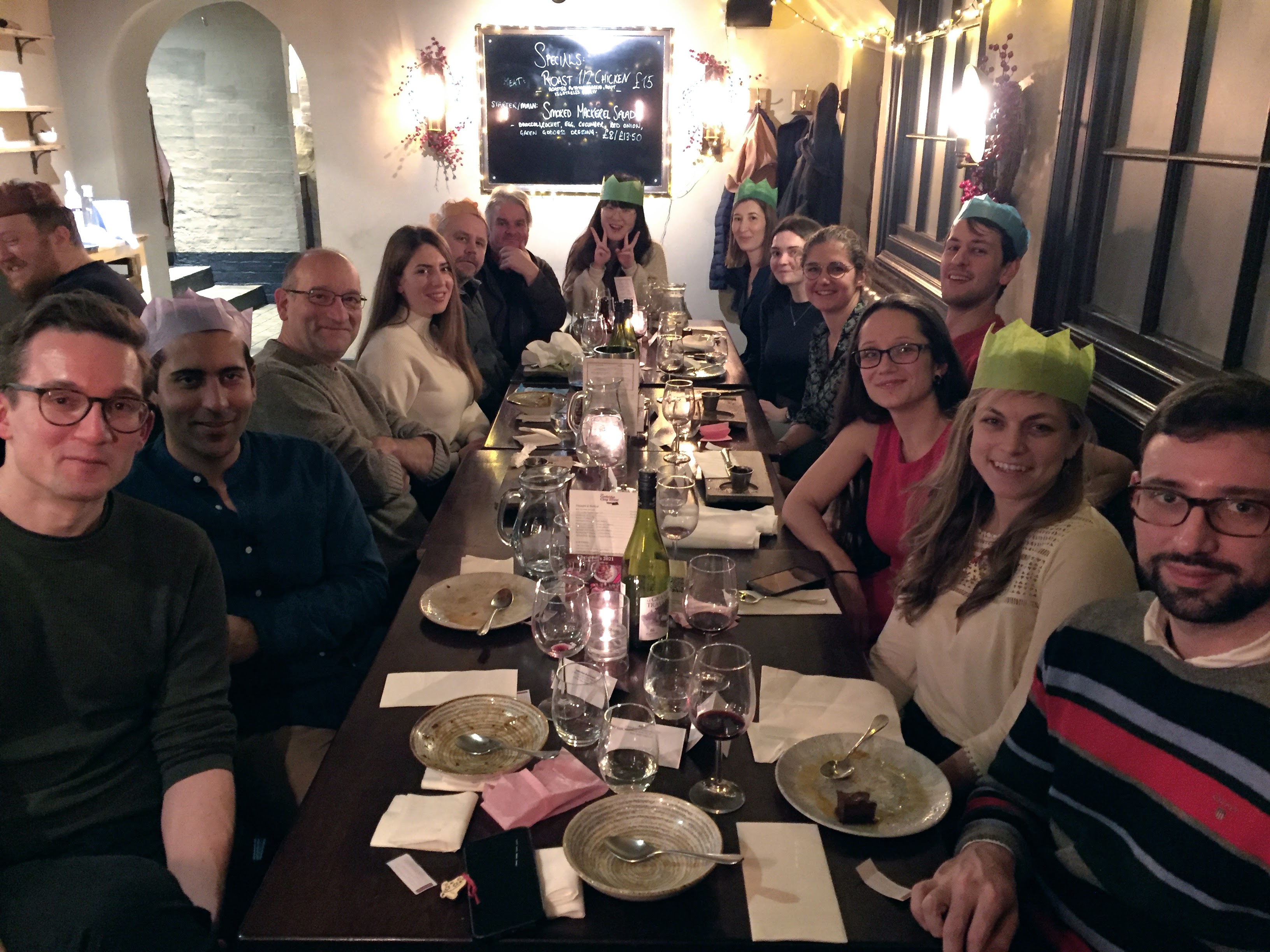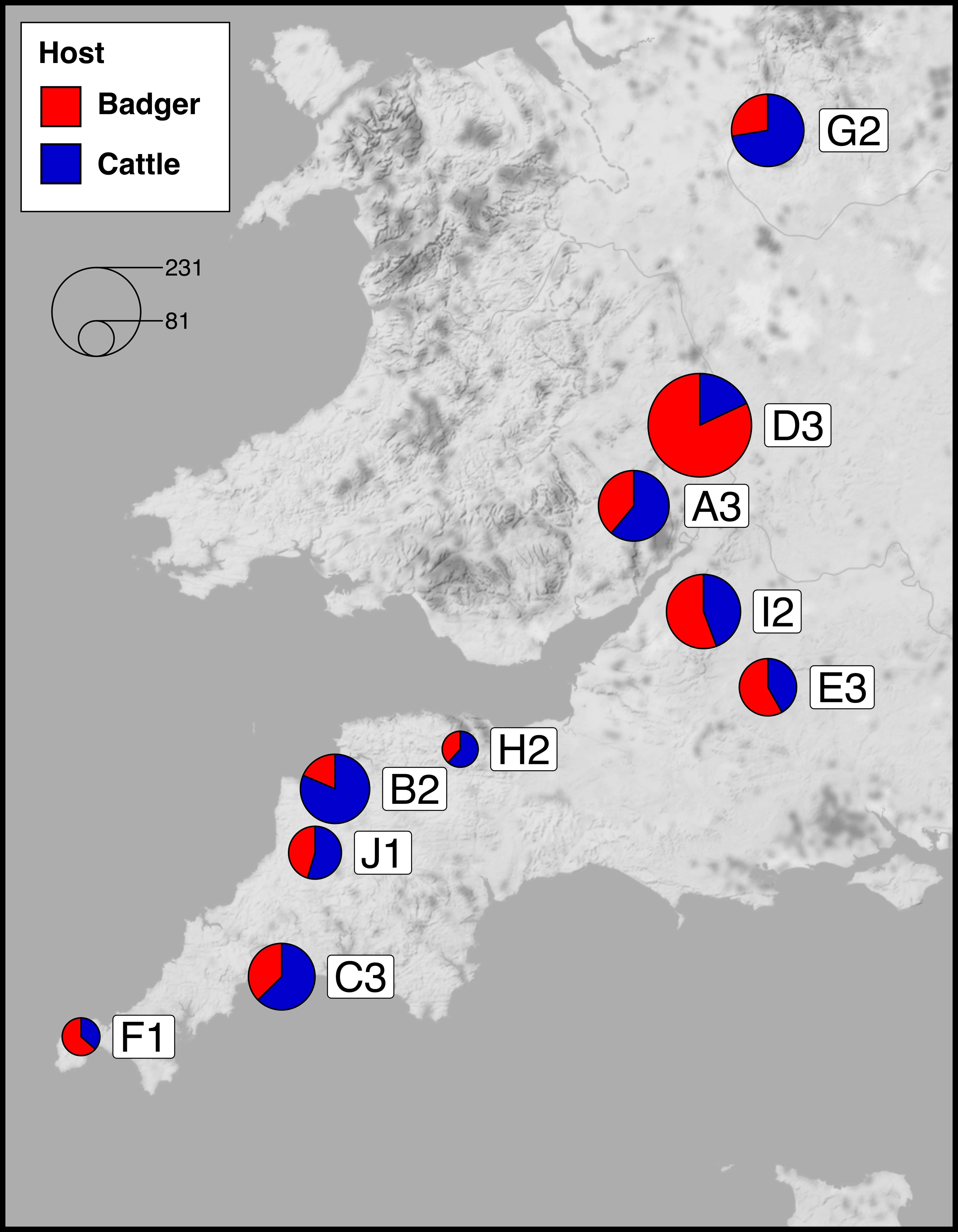
Good fun was had by all at the group Christmas dinner held at the Cambridge Chophouse.

Good fun was had by all at the group Christmas dinner held at the Cambridge Chophouse.

Led by Andries and a collaboration between the Vet School, the Animal and Plant Health Agency (APHA) and IBERS at the University of Aberystwyth, a new paper entitled Inferring Mycobacterium bovis transmission between cattle and badgers using isolates from the Randomised Badger Culling Trial is now out in PLoS Pathogens.
Bovine TB (bTB) is a significant cause of morbidity and mortality amongst cattle in the UK and across the world. The main cause of bTB, Mycobacterium bovis has a broad host range with the predominant host in the UK being the Eurasian badger. The Randomised Badger Culling Trial (RBCT) was a large-scale ecological field experiment carried out between 1998 and 2005 in England with the aim of quantifying the impact of culling badgers on the incidence of bTB breakdowns in nearby cattle herds. We sequenced 1,442 isolates from the RBCT in order to investigate the population structure of M. bovis at the time, identify putative transmission clusters and estimate the directionality of transmission, and integrate the genomic data with associated cattle movement data to identify examples of recurrence, superspreading and long-distance transmission. We found that the transmission clusters we identified were strongly associated with RBCT trial area and that, whilst badger to cattle transmission was broadly more common than vice versa, the majority of transmission was occurring within the herds or badger populations. Additionally, molecular dating of the transmission clusters showed that the clusters were likely seeded during the 1980s, a period during which the prevalence of bTB in the UK increased markedly.
Special mention must be made of Mark Thornton, a Part III Systems Biology student, who did his project in the group integrating the cattle movement data with the genomic data. This work provided an additional set of results to the paper that highlighted the usefulness of integrating genomics and epidemiological information when identifying aspects of M. bovis transmission.

Two projects have been successfully funded for 2021/2022:
‘The interactions of Ornithobacterium hominis with respiratory pathogens in South Africa’, a collaboration between Prof. Parkhill, Zannah Salter and Dr Felix Dube at the University of Cape Town.
‘Detailed characterization of Mycobacterium bovis of animal origin and tracking of zoonotic transmission between bovine and human hosts in Ghana’, a collaboration between Dr Andries van Tonder and Dr Prince Asare at Noguchi Memorial Institute for Medical Research.
More information about the Cambridge-Africa ALBORADA Research Fund can be found here
Our group Twitter account @PathGenEvoCam has now gone live. Please follow to keep updated with what the group is up to.
Congratulations to our PhD student, Noemie Lefrancq, on the publication of her first PhD preprint “Spatial dynamics and vaccine-induced fitness changes of Bordetella pertussis” (https://www.biorxiv.org/content/10.1101/2021.11.01.466439v1).